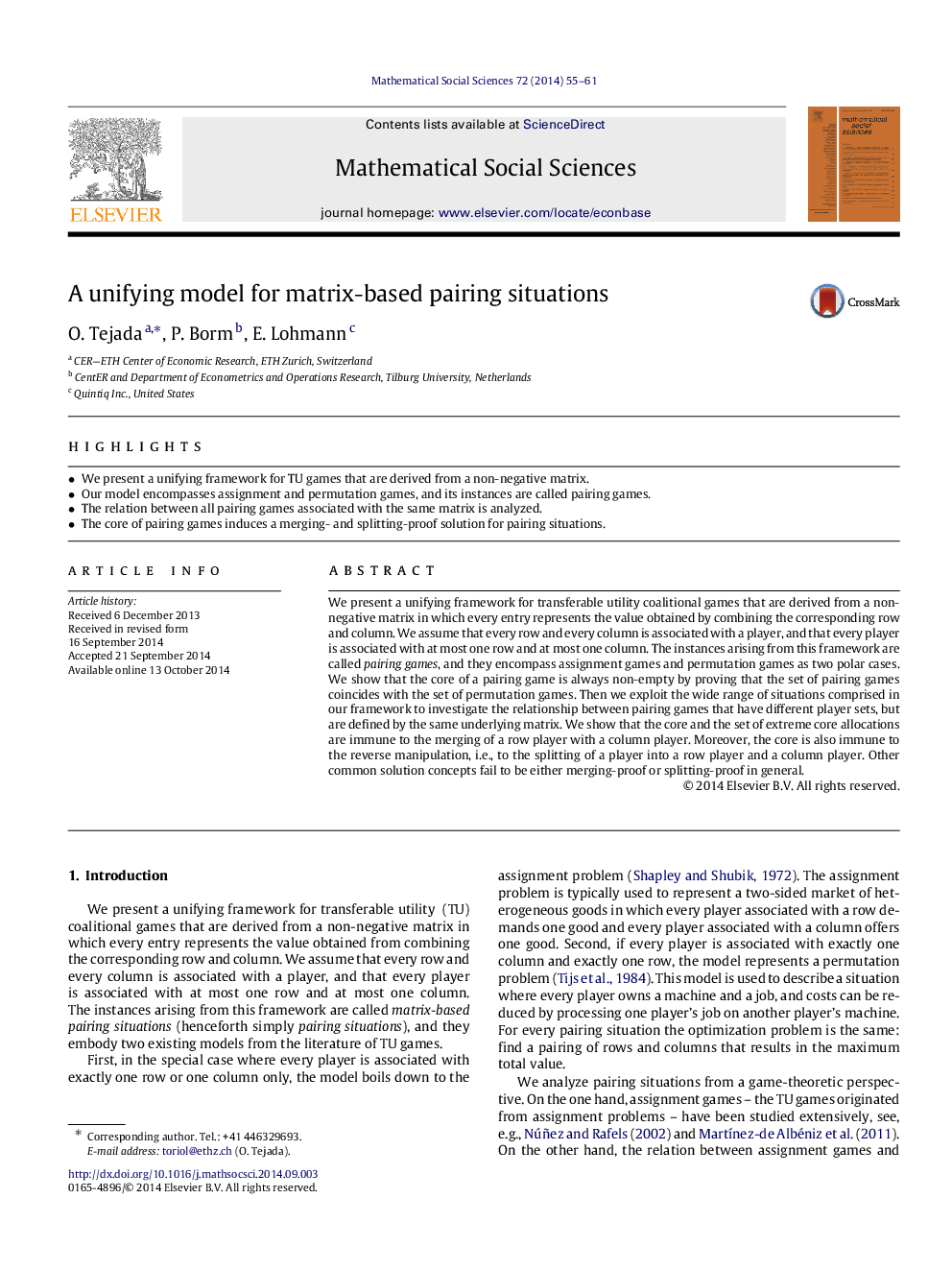| کد مقاله | کد نشریه | سال انتشار | مقاله انگلیسی | نسخه تمام متن |
|---|---|---|---|---|
| 972565 | 1479746 | 2014 | 7 صفحه PDF | دانلود رایگان |
• We present a unifying framework for TU games that are derived from a non-negative matrix.
• Our model encompasses assignment and permutation games, and its instances are called pairing games.
• The relation between all pairing games associated with the same matrix is analyzed.
• The core of pairing games induces a merging- and splitting-proof solution for pairing situations.
We present a unifying framework for transferable utility coalitional games that are derived from a non-negative matrix in which every entry represents the value obtained by combining the corresponding row and column. We assume that every row and every column is associated with a player, and that every player is associated with at most one row and at most one column. The instances arising from this framework are called pairing games, and they encompass assignment games and permutation games as two polar cases. We show that the core of a pairing game is always non-empty by proving that the set of pairing games coincides with the set of permutation games. Then we exploit the wide range of situations comprised in our framework to investigate the relationship between pairing games that have different player sets, but are defined by the same underlying matrix. We show that the core and the set of extreme core allocations are immune to the merging of a row player with a column player. Moreover, the core is also immune to the reverse manipulation, i.e., to the splitting of a player into a row player and a column player. Other common solution concepts fail to be either merging-proof or splitting-proof in general.
Journal: Mathematical Social Sciences - Volume 72, November 2014, Pages 55–61
